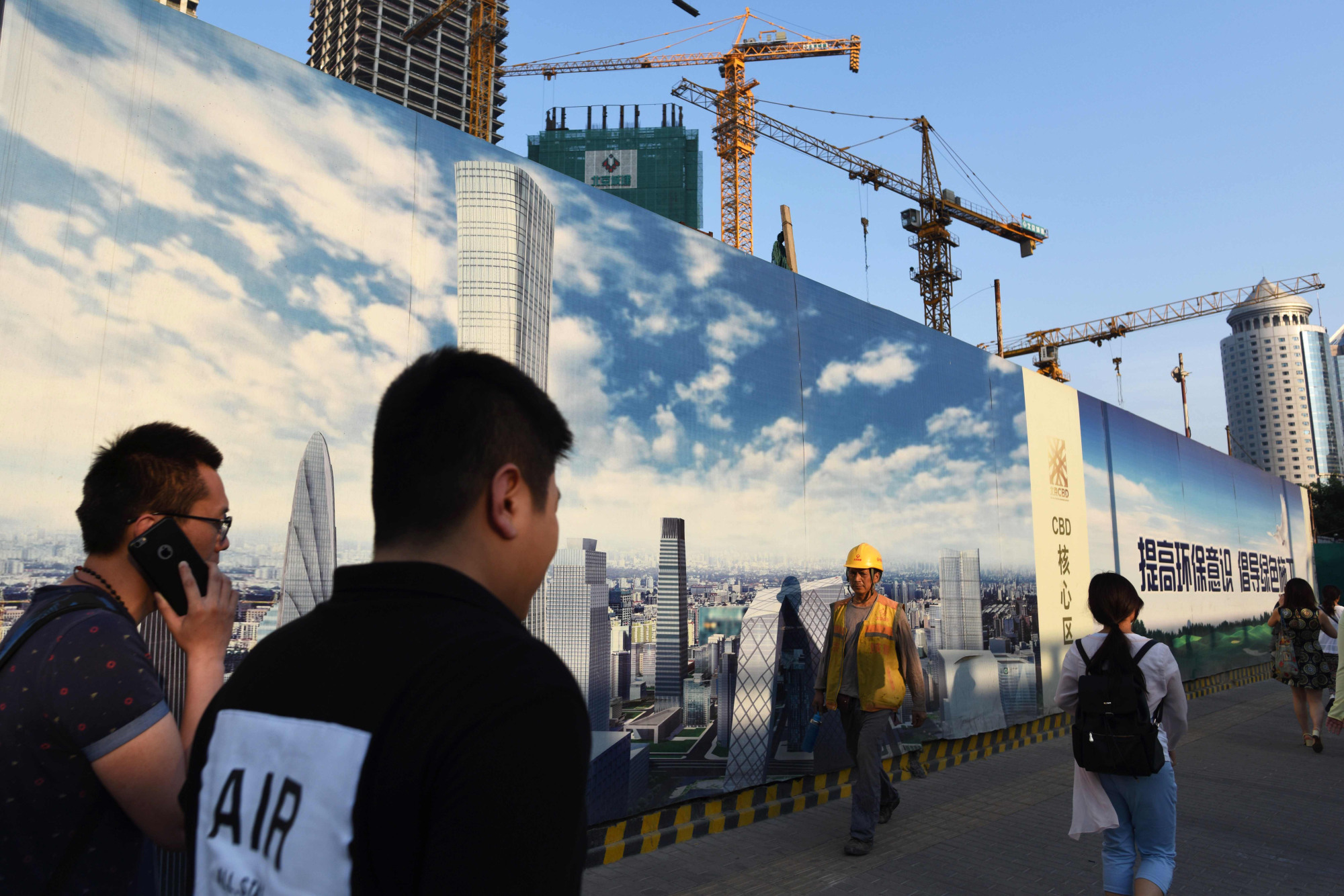Following an announcement in Beijing that China's economy scored 6.9 percent growth in the January-March period from a year earlier, some of the Japanese media painted positive pictures with headlines saying that the growth exceeded the government's target and that slowdown of the Chinese economy clearly bottomed out. As if to refute such optimism, however, concerns are mounting in international financial circles that the present status of China's economy is getting ever closer to what had existed in the United States when it was hit by the crisis triggered by the collapse of Lehman Brothers in 2008.
An American analyst stationed in Beijing points to an extraordinary expansion of personal debt as a major risk to the nation's economy. After the economy started showing signs of a slowdown in 2014, the government took every conceivable step to revitalize the real estate market by easing housing loan regulations. As a result, housing prices in major cities have shot up — by 78 percent in Beijing and 50 percent in Shanghai compared with 2010 levels. Household debt meanwhile kept expanding to account for more than 30 percent of fresh lending in the latter half of last year, up sharply from around 15 percent previously.
A Japanese correspondent in Beijing sums up the situation by saying that the government is trying to shift the burden of keeping up the economy's growth from the debt-laden public and corporate sectors to households, by getting people to cough up their savings and spend more because the state-driven stimulus policies are nearing their limits. Consumers rush to real estate "because they have nothing else to buy," says the reporter, adding that some of the people he knows complain that they have a hard time going on a shopping spree overseas due to tightened controls on capital outflow since last year, while others say they want to buy real estate before prices get even higher.


















With your current subscription plan you can comment on stories. However, before writing your first comment, please create a display name in the Profile section of your subscriber account page.